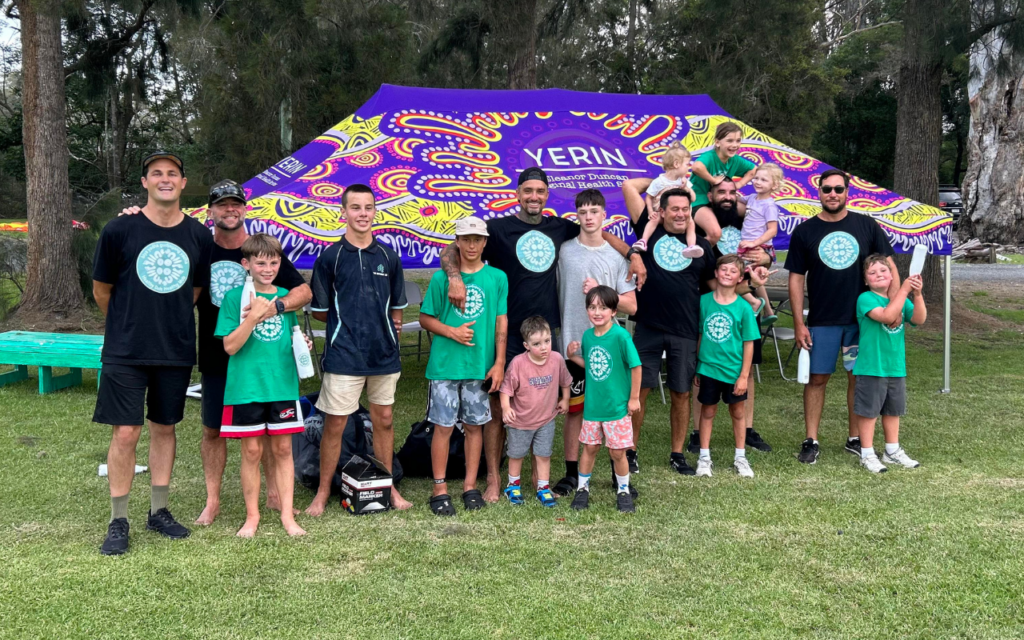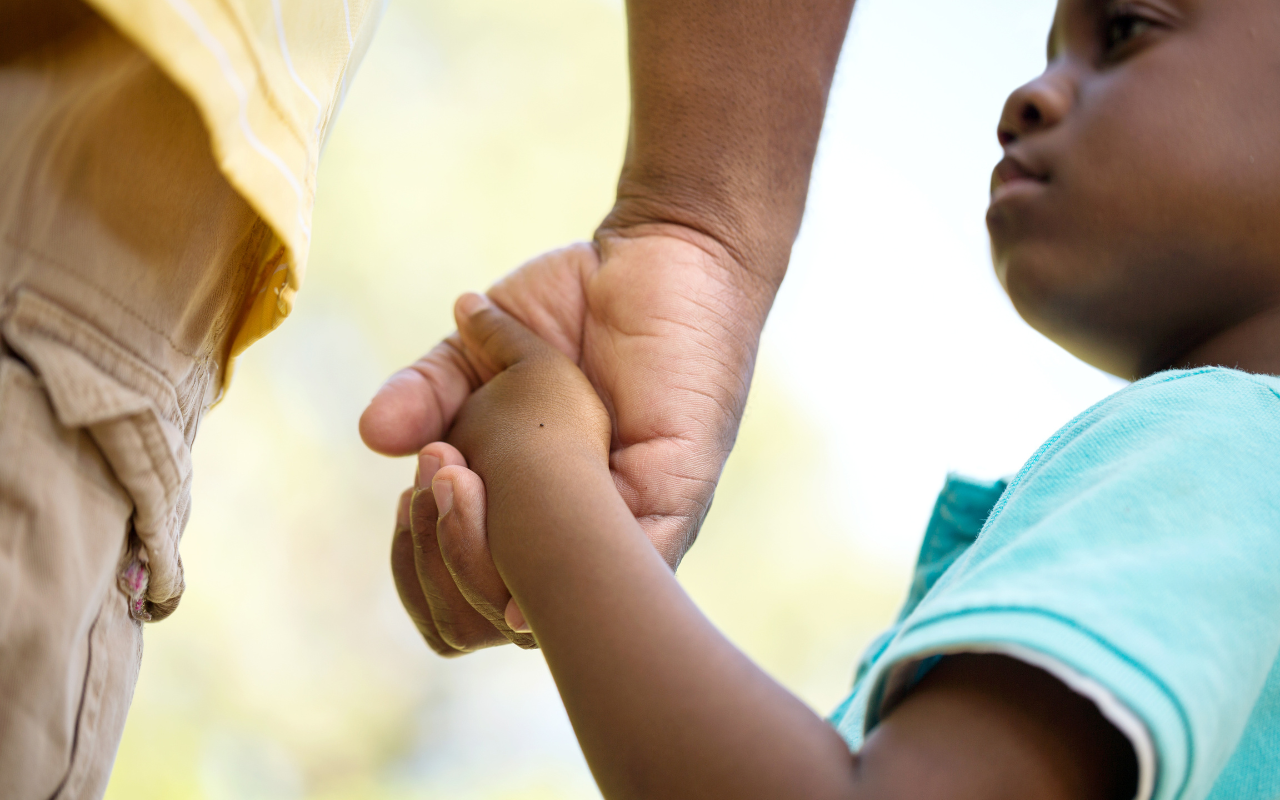New research has uncovered poor representation of Aboriginal and Torres Strait Islander peoples in trials of parenting programs in Australia.
A review, published in the Medical Journal of Australia, found that the specific needs of Aboriginal and Torres Strait Islander families have not generally been considered in Australian trials of parenting programs that aim to improve the mental and physical health of children.
The review examined 109 randomised controlled studies, finding that only nine (8%) reported Aboriginal or Torres Strait Islander parent participation.
It also found only 93 parent participants (0.6%) in those studies identified as Aboriginal and Torres Strait Islander people.
The review’s lead author, Mr Jake MacDonald, is a Ngarabal man, and Cultural Capability Partner in the Office of Indigenous Strategy and Leadership at the University of Newcastle. The scoping review is part of a larger thesis by Mr MacDonald – biya yadha gudjagang yadha (Healthy Dads Healthy Mob) – and focuses on representation of First Nations people in parenting programs.
“I wanted to understand what data was out there,” Mr MacDonald said. “Has it been safe for our mob? How do we adapt the things that are working in non-Aboriginal communities around health and make them work for local Aboriginal communities?”
“My family’s traditional Country is on the New South Wales/Queensland border, near Emmaville. My family were moved off our Country. And so for a couple of generations, we’ve been down here in Darkinjung Country.”

Gathering culturally safe data for Indigenous wellbeing
The review found that none of the 109 published studies mentioned the absence of consultation with Indigenous people or their low participation rate as a study limitation.
Mr MacDonald said the review was enlightening, especially viewed within the context of colonisation, the stolen generations, and other government policies that included the forced removal of children from their parents that continue to affect the health and wellbeing of Aboriginal and Torres Strait Islander people and families.
“There is this whole deficit view of what it means to be an Aboriginal parent,” said Mr MacDonald.
“Particularly around Aboriginal men, there’s this complete misunderstanding of what it means to be an Aboriginal father and to nurture children. Colonisation has played a part in disrupting our traditional roles as parents and caregivers.”
“There’s been a heap of parenting research. But have Aboriginal people been involved? Are they going to be responsive to the needs and understand the unique position of Aboriginal families?”
“There were only nine studies out of the 109 that met the inclusion criteria that reported on the cultural background of the participants,” said Mr MacDonald.
“And of the 15 559 parent participants, only 93 identified as Aboriginal and Torres Strait Islander people,” he said.
The review concludes that the specific needs of Aboriginal and Torres Strait Islander families have been overlooked by parental support program research in Australia, leading to restricted support options.
“Indigenous … parenting methods are neither adequately understood nor incorporated into policy and practice,” Mr Macdonald and his colleagues wrote.
Beyond the data
Mr Macdonald’s team has already translated the findings into a culturally appropriate program for Aboriginal and Torres Strait Islander fathers and children in his region.
“We undertook a process of yarning with local Aboriginal fathers living on Darkinjung Country to design a parenting program that addressed their needs,” said Mr Macdonald.
“Professor Phil Morgan from the University of Newcastle has delivered Healthy Dads Healthy Kids, which has seen good results for the broader community but has never been adapted for Aboriginal fathers and their children.”
He and his team then set about creating a program specifically for Aboriginal fathers and their children.
“So, we had some yarning sessions [with a Yerin men’s group] where we discussed, what does it mean to be an Aboriginal dad living on Darkinjung Country? What would you want if we were creating a program for your kids?” Mr MacDonald said.
The program was run in partnership with Yerin Eleanor Duncan Aboriginal Health Services.
“It’s an eight-week course. So, they do an education session, and outdoor physical activity session, and then we finish with a feed together. And for our communities, that’s important that we all eat together and build those relationships informally.”
Authentic consultation
Mr MacDonald received cultural governance from the University of Newcastle’s Board of Aboriginal and Torres Strait Islander Education and Research (BATSIER).
“A big part of my research is the importance of cultural governance structures,” he said.
“Even as an Aboriginal man, I need to have Aboriginal people oversee the research I’m doing and allow them to shape it in an authentic way.”
Seeing the results
“We have captured some quantitative measures. The findings are preliminary, but it’s looking really promising,” Mr MacDonald said.
“But what was really valuable to me were the personal stories, the qualitative stuff that the dads were saying they’ve got a better relationship with their kids.”
Mr MacDonald said that recently becoming a parent himself made his work feel even more significant.
“If we’re ever going to really attempt to address some of these issues, we need to sit down and discuss that with local communities, and do that in a meaningful, comprehensive way” he said.
“We must understand the generational impact of being dispossessed from your Country, having your children removed. If we don’t, we’re going to continue to talk about closing the gap without doing it.”
Read the scoping review in the Medical Journal of Australia.
Subscribe to the free InSight+ weekly newsletter here. It is available to all readers, not just registered medical practitioners.

 more_vert
more_vert